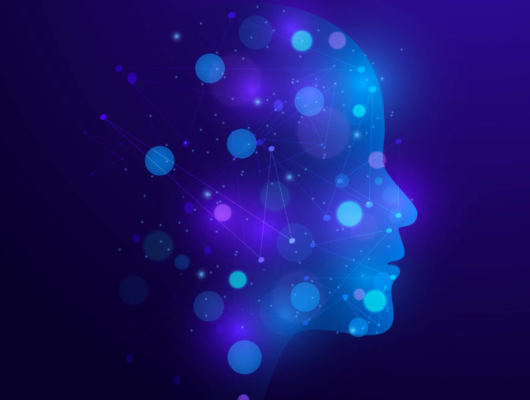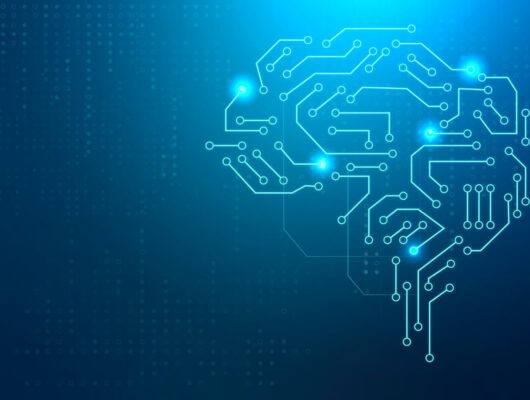Artificial Intelligence (AI) has revolutionized various aspects of our lives, from healthcare to finance, and continues to shape our future. However, the journey towards creating machines that can perform tasks as well as humans, across diverse domains, has led to the concept of Artificial General Intelligence (AGI). Unlike narrow AI, which excels at specific tasks, AGI aims to replicate the broad cognitive abilities of humans. In this blog, we will delve into the intricacies of AGI, exploring its potential, challenges, and the transformative impact it could have on our world.
1. What is Artificial General Intelligence?
AGI is an advanced form of AI that possesses the ability to understand, learn, and apply knowledge in a manner akin to human intelligence. It encompasses the capacity for reasoning, problem-solving, abstract thinking, and the ability to adapt to new situations autonomously. While current AI systems excel at specialized tasks, AGI seeks to break these limitations, enabling machines to perform any task that a human being is capable of.
Key Characteristics of AGI
- Versatility: AGI systems can perform various tasks without needing to be specifically programmed for each one.
- Autonomy: They can operate independently, making decisions and solving problems without constant human intervention.
- Learning Ability: They can operate independently, making decisions and solving problems without constant human intervention.
The pursuit of AGI is driven by the vision of creating machines that can think and reason like humans, potentially transforming numerous industries and aspects of daily life.
2. The Potential of AGI: Transforming Industries and Society
Artificial General Intelligence (AGI) promises to revolutionize not just technology, but the very fabric of society and numerous industries. The integration of AGI into various industries can lead to enhanced efficiency, innovation, and problem-solving capabilities
Healthcare
In healthcare, AGI could revolutionize diagnostics, treatment planning, and personalized medicine. With the ability to analyze vast amounts of medical data, AGI systems can assist doctors in diagnosing diseases more accurately and suggesting optimal treatment plans tailored to individual patients. Furthermore, AGI can accelerate drug discovery processes by simulating human biology and predicting the efficacy of new drugs.
Finance
The finance industry could also benefit significantly from AGI. AGI systems can analyze market trends, assess risks, and make real-time decisions, leading to more informed investment strategies and improved financial management. Fraud detection and prevention would become more sophisticated, enhancing the security and reliability of financial transactions.
Education
In education, AGI has the potential to create personalized learning experiences for students. By understanding individual learning styles and preferences, AGI-powered educational platforms can adapt content and teaching methods to optimize learning outcomes. This can lead to more effective education systems that cater to the unique needs of each student.
Manufacturing and Automation
AGI could revolutionize manufacturing processes by enabling fully autonomous production lines. These intelligent systems can adapt to changing demands, optimize production schedules, and ensure high-quality outputs. AGI-driven automation can lead to increased productivity and reduced operational costs
3. Challenges and Ethical Considerations in Developing AGI
While the potential benefits of AGI are immense, its development poses significant challenges and ethical dilemmas that must be addressed to ensure responsible and beneficial outcomes.
Technical Challenges
Developing AGI requires overcoming numerous technical hurdles. One of the primary challenges is creating systems that can understand and process vast amounts of information across various domains. Additionally, AGI must be capable of reasoning, learning from limited data, and generalizing knowledge to new situations. Achieving these capabilities necessitates advancements in machine learning algorithms, neural networks, and computational power.
Ethical and Social Implications
The development of AGI raises profound ethical questions. As AGI systems become more autonomous and capable, ensuring that they align with human values and societal norms becomes crucial. Issues such as bias in decision-making, accountability for actions taken by AGI, and the potential displacement of jobs require careful consideration.
Safety and Control
Ensuring the safety and control of AGI systems is paramount. There is a need to establish robust frameworks and protocols to prevent unintended consequences and ensure that AGI operates within defined boundaries. Developing fail-safes and mechanisms for human oversight is essential to mitigate risks associated with AGI deployment.
4. The Future of AGI: Possibilities and Pathways
The future of AGI holds both exciting possibilities and uncertainties. The path to achieving AGI involves collaboration, innovation, and a commitment to ethical principles. Several key areas will shape the development and integration of AGI in the coming years.
Research and Development
Continued research and development are essential to advance AGI technologies. Interdisciplinary collaboration between computer scientists, cognitive scientists, ethicists, and policymakers will play a crucial role in addressing the technical and ethical challenges associated with AGI. Investment in fundamental research and the exploration of novel approaches to machine learning and artificial intelligence will drive progress.
Regulation and Governance
Establishing clear regulations and governance frameworks is vital to ensure the responsible development and deployment of AGI. Policymakers must work with industry leaders and researchers to create guidelines that prioritize safety, transparency, and accountability. International cooperation will be necessary to address the global implications of AGI and to prevent misuse or unintended consequences.
Human-AI Collaboration
The future of AGI will likely involve a collaborative relationship between humans and intelligent systems. Rather than replacing human roles, AGI can augment human capabilities and enhance productivity. Emphasizing human-AI collaboration can lead to more innovative solutions and improved outcomes across various fields.
Embracing the Potential of AGI with Responsibility
Artificial General Intelligence represents a transformative leap in the field of artificial intelligence, promising to revolutionize industries and improve our quality of life. However, the journey towards AGI is fraught with challenges and ethical considerations that must be navigated with care. By fostering interdisciplinary collaboration, establishing robust regulatory frameworks, and prioritizing human-AI collaboration, we can harness the potential of AGI responsibly and pave the way for a future where intelligent machines work alongside humans to solve complex problems and create a better world.
Codely.AI is committed to advancing the field of AGI through innovative research and ethical practices. Join us as we explore the limitless possibilities of Artificial General Intelligence and shape a future where technology and humanity coexist harmoniously.





